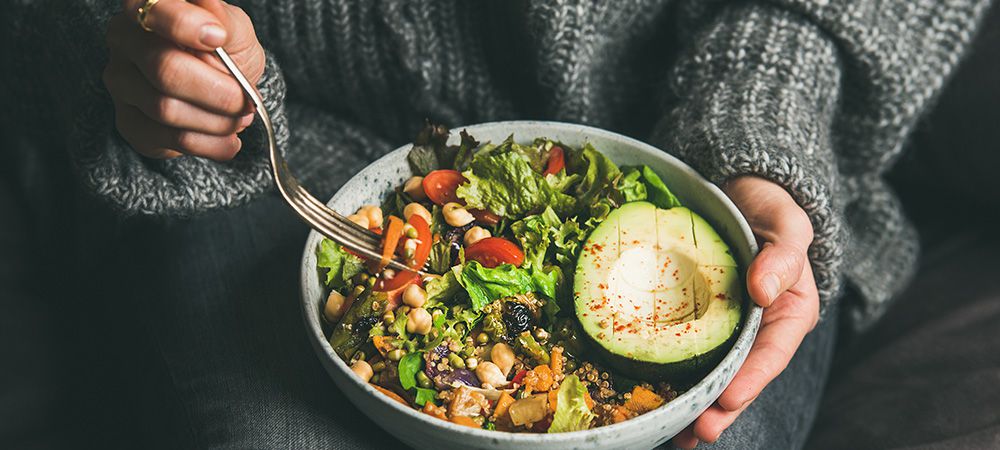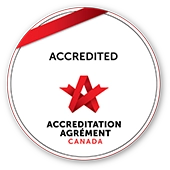Addiction to food can be just as debilitating and dangerous as addictions to substances, but it can be more difficult to get rid of. Typically, addictions to substances like alcohol and opioids are treated through a combination of therapy and abstinence.
But food is a necessity of life: abstinence is not an option. This presents a challenge for people who are trying to recover from food addictions. Just as a single drink can trigger a downward spiral for those with alcohol addictions, a little bit of food can do the same for those with food addictions. The difference is that people in recovery from alcohol addictions can avoid alcohol without threatening their health.
Sometimes, people with food addictions do try to avoid food, or at least to severely limit their food intake. Not only does this pose a serious risk to your health, it can lead to other eating disorders, like anorexia nervosa.
Treating food addiction is therefore a balancing act: you have to correct the problem without overcorrecting it.
Restoring Physical Health
Any addiction is hard on the body, and food addiction is no exception. On the contrary, food is one of the essential elements needed to sustain life and health. Any imbalance in our food intake – whether that means food deprivation, overconsumption of food, or eating the wrong kinds of food – can have direct implications on our physical well being.
Many people associate the term “food addiction” with overeating, but this is not accurate. Studies on this subject are ongoing, but the data to date suggests that around 10% of people who have a BMI score within the “normal” range suffer from food addictions. For some, this condition manifests as overconsumption of all foods; for others, it means an affinity for specific foods that bring comfort or reduce stress.
In either case, physical health is likely to be significantly impacted. Some possible effects of food addiction include the following:
- Elevated blood pressure, heart disease, and high levels of “bad” cholesterol
- Digestive complaints such as abdominal pain, nausea, and acid reflux
- Headaches
- Fatigue or low energy
- Lowered immunity resulting in frequent colds and other ailments
- Liver disease
- Deficiencies of vitamins, iron, folic acid, and other nutrients
- Body fat or muscle mass percentages that are too high or too low
- Difficulty with cognitive function, memory or concentration
- Some cancers can result from overconsumption of certain foods
Giving up a food addiction is an important step, but it is not enough. It is important to take the steps necessary to restore your physical health and reduce these risk factors. This can be done through a combination of nutrition therapy, physical activity, and medical intervention. Your best course of action is to schedule a full physical exam with your doctor, who will then recommend the lab work and treatments that are right for you.
Treating The Underlying Causes
Addiction rarely happens in isolation. There is usually an underlying cause or a coexisting condition, such as trauma or mental illness. People may also be at higher risk of developing a food addiction if they have a prior history of eating disorders, body dysmorphia, or body image issues. Medications and biological factors like hormonal imbalances may also play a role.
Treating food addiction is like treating any other addiction in the sense that rehabilitation has to include treatment of the underlying issues. The best exercise and nutrition plans available and the highest levels of motivation to stick to them will not make those problems go away. If you do not work towards addressing them, you will be at higher risk of relapse.
Working on the root causes of food addiction looks different for everybody. For some people, it means therapy to address past traumas or present-day stresses. For others, it may involve family therapy to improve relationships, or yoga to reduce stress. In some cases, the food addiction may have a medical cause that needs medical intervention.
Adopting A Healthy Eating Plan

Food addiction is unique in the sense that you cannot resolve it by giving up the subject of the addiction – namely, food. Your only recourse is to change your relationship with food and learn how to incorporate it in your life in a way that is healthy.
If your food addiction is focused on a specific food item or group, such as burgers or chocolate, you may be able to simply cut those things out of your eating plan. If your problem lies with food in general, you may have to learn about nutrition, how different foods behave once you ingest them, and how you can control your intake of food.
Eating Healthily For The Right Reasons
There is no doubt that we live in a society that values certain physical appearances. For decades, girls and women have been under immense pressure to look a certain way or meet social standards of “being thin”, although men and boys are under increasing amounts of pressure as well.
When you are formulating a healthy eating plan – hopefully under the guidance of a doctor or nutrition expert – it is important to do so for the right reasons.
You are not “going on a diet” in order to lose weight or look a certain way, you are adopting a healthy eating lifestyle so you can enjoy a healthy relationship with food.
You are not eliminating specific items from your eating plan to punish yourself, you are working hard to overcome your addiction and reduce your risk of relapse.
You are not adopting a healthy lifestyle to gain the approval of other people, you are doing so for the sake of your own physical and mental health.
Food Addiction Treatment In Toronto
Food addiction can be difficult to overcome, but with the right support you can do it. At Addiction Rehab Toronto, we will help you every step of the way. We will ensure that you have the medical care you need to regain your physical health, and we will show you how to follow a nutrition plan that works, and that you can sustain. Most important, we will help you explore and address the issues that lie beneath your addiction. You can recover, and you can go on to lead a healthy, happy life and a positive relationship with food. Call us today for more information.






